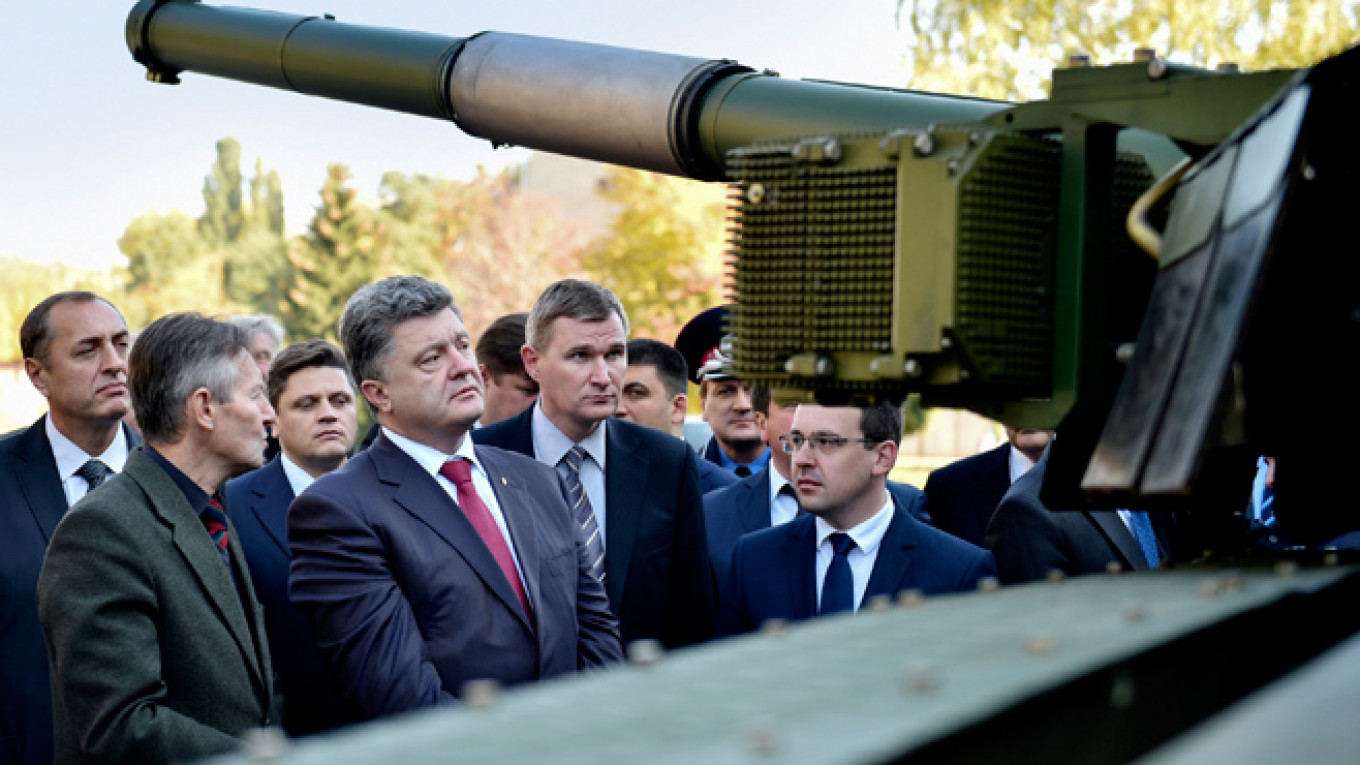
Sergii Leshchenko
This month marks the two-year anniversary of Petro Poroshenko being elected president of Ukraine.
The elevation of the chocolate magnate to the top chair came following tragic events at Maidan, the flight of former President Viktor Yanukovych and the annexation of parts of Ukrainian territory by Russia. Poroshenko was eventually elected president in one round, but this was only made possible after a clever media campaign and deals with leading politicians and oligarchic clans.
The results of such deals continue to undermine Poroshenko's presidency. The oligarchs are as strong as ever, parliament remains riddled with corruption, and the president still can't decide who he is: statesman or businessman.
All the while, Poroshenko's task has been weighed down by peace negotiations for eastern Ukraine. The Minsk agreements, which contain his signature, have become a black mark in Ukrainian politics. Indeed, the very first stage of their implementation — the adoption of amendments to the constitution — was marked by live grenades, bloodshed and the death of four national guardsmen on the square in front of parliament.
Today, the Minsk agreements have become so unpopular in Ukraine that their only real purpose could be to exacerbate internal conflict and bring forward early parliamentary elections. It is impossible to believe that parliament will vote for the necessary laws while Russia has not played its role in implementing a full cease-fire in the Donbass, the withdrawal of heavy weaponry and the handover of border control back to Ukraine.
The two-year mark of Poroshenko's rule coincides with the forming of a new Cabinet. Headed by Volodymyr Groysman, considered a Poroshenko ally, it is the president's last chance for a loyal government.
The new coalition controls 226 votes in parliament, a narrow arithmetic majority. Groysman's government finds itself having to scrape together votes from outside parties to pass important bills. His only real allies in this mission are the oligarchic factions Vidrodzhennya (Renaissance) and Volya Narodov (People's Will).
Meanwhile, Groysman has turned out to be more cunning than Poroshenko expected. During the course of negotiations, the prime-minister-to-be issued an unexpected ultimatum: He would only agree if the president removed several loyal ministerial underlings from the Cabinet. I witnessed Poroshenko's anger during internal meetings of his parliamentary bloc. Sparks flew between the president and prime minister.
In the end, Groysman emerged the victor, and demonstrated that he was unprepared to be a blind executioner. He has his own ambitions, and his statements to the effect of him not intending to ballot for the presidency seem no more than platitudes to calm the jealousy of Poroshenko.
The main takeaway from two years of Poroshenko's presidency has been the defeat of reform at the gates of oligarchic consensus. Not one of Ukraine's main oligarchs has suffered serious losses. Igor Kolomoisky remains strong as ever, and even supported Groysman's bid for prime minister. Rinat Akhmetov, who for many years acted as a parasite around government tenders, still holds key influence, albeit less than was once assumed.
Sixty percent of Ukrainians consider the president personally responsible for the continued high levels of corruption. This figure shows just how much post-revolutionary Ukraine has raised its expectations of its politicians. The demand from society today couldn't be clearer: It wants zero tolerance for corruption and the complete rejection of oligarchic clans.
The anti-corruption rhetoric of the former Georgian president, current governor of Odessa, Mikheil Saakashvili, most clearly answers this call. It has made him one of the most popular politicians in the country — despite very modest breakthroughs in Odessa itself. Saakashvili plans to bring young reformers together and to demand early parliamentary elections.
The final word on whether parliament is dismissed early is left to Poroshenko, who is uninterested in strengthening Saakashvili's position. In this the president is helped by Groysman's new government, which has pushed back early elections by at least a year. In Ukraine, that's a lifetime — preferences may change many times over twelve months.
Further delays in fighting corruption will make things even worse for the president. Poroshenko and his entourage cannot continue to make their fortunes with impunity. Journalists and politicians of the new generation will simply not allow it.
If Poroshenko decides to ignore the warnings, the outcome is clear. It will lead to the further decimation of his rating, and, with it, a most inglorious end to his presidential career.
Sergii Leshchenko is a former investigative journalist and MP in Petro Poroshenko's parliamentary bloc.
A Message from The Moscow Times:
Dear readers,
We are facing unprecedented challenges. Russia's Prosecutor General's Office has designated The Moscow Times as an "undesirable" organization, criminalizing our work and putting our staff at risk of prosecution. This follows our earlier unjust labeling as a "foreign agent."
These actions are direct attempts to silence independent journalism in Russia. The authorities claim our work "discredits the decisions of the Russian leadership." We see things differently: we strive to provide accurate, unbiased reporting on Russia.
We, the journalists of The Moscow Times, refuse to be silenced. But to continue our work, we need your help.
Your support, no matter how small, makes a world of difference. If you can, please support us monthly starting from just $2. It's quick to set up, and every contribution makes a significant impact.
By supporting The Moscow Times, you're defending open, independent journalism in the face of repression. Thank you for standing with us.
Remind me later.






